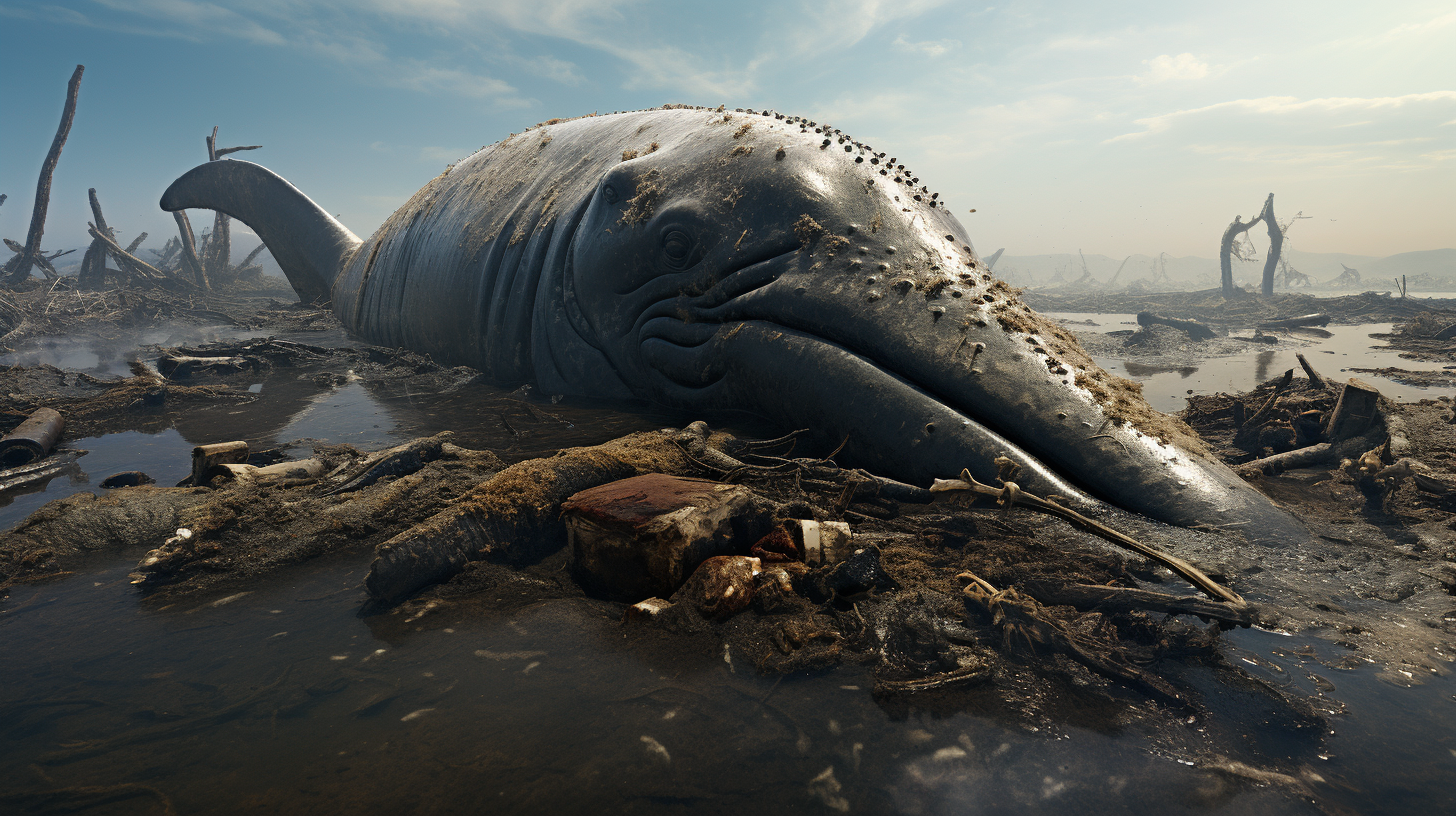In an oceanic world that once teemed with life and vibrancy, the gentle giants of the sea embark upon a journey poignant and pitiable. Whales Wander Wastelands – The Great Mammals’ Last Migration is a somber chronicle of the once-majestic cetaceans now traversing the graveyards of their ancestors in search of refuge they will not find.
The Migration Begins: As our planet’s waters turned from cradle to crypt, the whale songs once symbolizing oceanic grandeur have been transformed into dirges of despair. Their epic migrations, once a testament to nature’s resilience, now serve as a grim parade through toxic corridoors of discarded human waste that we so ingenuously term the ‘Great Pacific Garbage Patch.’ Their odyssey is no longer driven by the primal urge to nurture new life in warmer waters, but by the sheer necessity to survive the blight mankind has wrought.
The Trail of Tragedy: The route is marred by a litany of sorrow; bodies of the fallen float alongside rafts of refuse, entanglement in ghost nets and the ingestion of plastic debris are but common mishaps in their perilous trek. Such horrors are not merely observed but recounted through the scientific voices that echo with futility, as they monitor the decimation of a species that once burgeoned across the ocean’s expanse.
Whispers of the Deep: It is amidst these watery graves that researchers have made an unsettling discovery – the calves are vanishing. Not succumbing to the wasteland-borne hazards as one might expect, but rather, simply not being born. Biologists’ warnings that toxic pollutants could disrupt the fertility of these marine behemoths are now manifesting into a chilling reality. With each passing season, the hope for new life wanes; the silence in the ocean depths grows ever more profound.
A Vista of Desolation: How do we illustrate the pain in knowing that our children may only perceive whales through the dim filter of virtual simulation or aged recordings of their haunting calls? The image of a blue whale, the largest creature to ever inhabit the Earth, sliding silently through a liquid graveyard sends a shudder down the spine of even the most stoic observer.
Our narrative is not merely one of loss, but a brutal testament to the consequences of humanity’s avarice. The migratory plight of these leviathans is not an isolated phenomenon but a symptomatic revelation of a broader collapse, one that has turned a diverse ecosystem into a dystopian oceanic desert.
The Inescapable Conclusion: As they complete their final passage through a world bereft of solace, we bear witness to the twilight of the whale, a final chapter written in the annals of a once-thriving biosphere. It is a tale of majestic beings whose grace could not shield them from our collective neglect, one that begs reflection and remorse.
In the midst of the overwhelming darkness, however, there lies an opportunity to confront the mirror, to identify within ourselves the catalysts of ruin and, at the very least, to glean a lesson from the silence of a disappearing giant. For it is within the cessation of the whales’ timeless migration that we must finally concede the full extent of our transgressions against the natural world.
